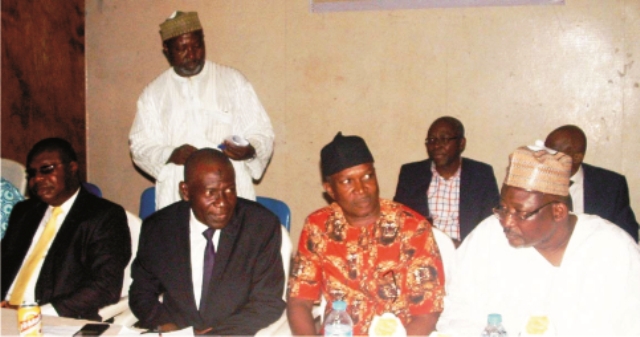Business
Community Lauds Illegal Markets Demolition In PH

The Rumuwoji Community
has commended the vision of the Rivers State Government through the Ministry of Urban Development to restructure the state capital and numerous efforts to stop streets trading in the state capital.
In a press statement signed by the Secretary of the Community, Ikechi Nwankwo Wigodo on Saturday commended the political will of the present administration in stopping street trading in Port Harcourt and other cities of Port Harcourt.
Wigodo in the statement noted that the demolition of Afikpo/Ikwerre Road street trading was a welcomed development, stressing that the traders have no course to blame the government because the Ministry of Urban Development and Physical Planning has severally warned and cautioned the traders on dangers of street trading.
According to him, “An alternative place was provided for the traders at Njemenze/Silverbird Cinema area, pending the completion of the second phase of the Rumuwoji Market but the traders refused to relocate and decided to trade on the street and obstruct traffic.
The Community leader explained that the call by the women who involve in the illegal trading at Afikpo/Ikwerre Road street trading is uncalled for because there is a place already made available for them to engage in their business activities.
“Since the traders were chased out, the traffic along Afikpo and Ikwerre have stop. We commended the ministry for its efforts. We also called the ministry to deploy its guide to always check the activities of the traders who usually reappear after closure of work and block the road and caused traffic. We also notice that on Saturdays and Sundays, these traders still operate their illegal activities”, he said.
He also debunked the statement by the traders that a day notice was given to the traders, stating that since February, the ministry has been on the streets and Motor parks on advocacy and awareness campaign against streets trading, but regretted that all these did not yield any consequence on the people and traders.
Wigodo regretted that those who involve in the street trading are non Rivers peoples who are interested to distort the city plan, adding that some parts of the Ikwerre road is flooded during rain because these traders block the drain with solid waste during and after their activities.
He urged the displaced traders to relocate to the designated place meant for trading and stop distorting the city of Port Harcourt, adding that the community is solidly behind the government and the ministry of Urban Development and Physcial Planning in its drive to restore and sustain the cleaningness of Port Harcourt.
Business
Fidelity Bank To Empower Women With Sustainable Entrepreneurship Skills, HAP2.0
Business
President Tinubu Approves Extension Ban On Raw Shea Nut Export
Business
Crisis Response: EU-project Delivers New Vet. Clinic To Katsina Govt.
-

 Education5 days ago
Education5 days agoElga boss tasks law students on academics strides
-

 News1 day ago
News1 day agoAmend Constitution To Accommodate State Police, Tinubu Tells Senators
-

 Politics1 day ago
Politics1 day agoSenate Urges Tinubu To Sack CAC Boss
-

 News1 day ago
News1 day agoDisu Takes Over As New IGP …Declares Total War On Corruption, Impunity
-
Business2 days ago
President Tinubu Extends Raw Shea Nuts Export Ban To 2027
-
Business2 days ago
Crisis Response: EU-project Delivers New Vet. Clinic To Katsina Govt.
-

 Business2 days ago
Business2 days agoPENGASSAN Rejects Presidential EO On Oil, Gas Revenue Remittance … Seeks PIA Review
-
Business2 days ago
FG Pushes Cassava Bioethanol Drive To Boost Industrial Growth

